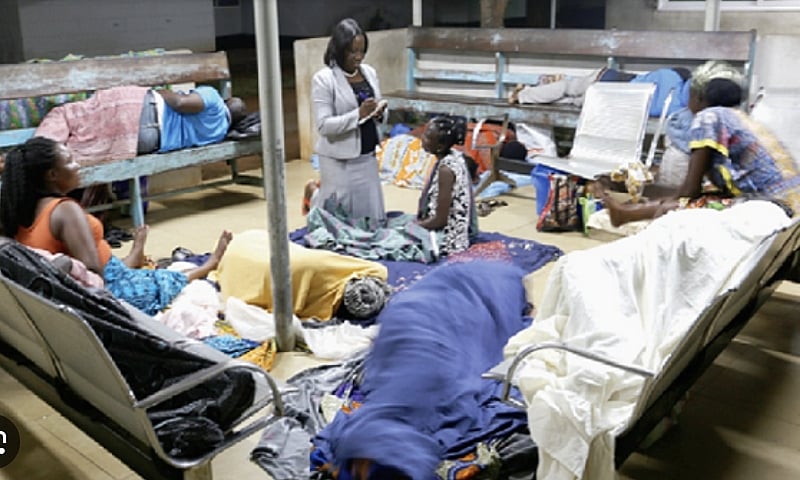The District Chief Executive (DCE) for the Daffiama-Bussie-Issa (DBI) District, Mr. James Wor, has highlighted the pressing need for government intervention and collaborative efforts with development partners to prioritize the construction of dedicated delivery rooms in rural health facilities. He underscores the critical role maternal healthcare plays in overall healthcare provision, expressing his concern over the omission of delivery rooms in some Community-based Health Planning and Services (CHPS) compounds. This deficiency, he argues, undermines the effectiveness of maternal healthcare services, particularly in remote communities where access to comprehensive medical care is often limited.
Mr. Wor acknowledges the proactive efforts of certain communities that have recognized this gap and taken the initiative to construct delivery rooms at their local health facilities. This community-led approach demonstrates a commitment to improving maternal health outcomes, but it also underscores the government’s responsibility to provide adequate infrastructure for essential health services. The DCE’s emphasis on delivery rooms highlights the vulnerability of expectant mothers in areas lacking proper facilities and reinforces the importance of prioritizing maternal health in rural development strategies.
Beyond delivery rooms, Mr. Wor also stresses the critical importance of providing suitable accommodation for health staff at rural health facilities. He argues that on-site housing for healthcare professionals is crucial for ensuring round-the-clock service availability, particularly during nighttime emergencies. The lack of proper accommodation, he observes, negatively impacts healthcare delivery as nurses posted to rural areas often face challenges in finding suitable living arrangements. This can lead to long commutes, potentially affecting the quality and timeliness of care provided to patients, particularly in emergency situations. The provision of housing would not only improve the lives of healthcare workers but also incentivize qualified professionals to serve in underserved rural communities.
The DCE points out that the current practice of constructing health facilities without considering these crucial elements – delivery rooms and staff accommodation – reflects a gap in policy planning. He advocates for a shift in policy to mandate the inclusion of these essential components in the design and construction of all new health facilities. This proactive approach, he believes, would ensure that rural communities have access to comprehensive and readily available healthcare services, thereby improving health outcomes and reducing health disparities between urban and rural populations. Mr. Wor pledges to champion this policy change within his own jurisdiction, ensuring that all new health facilities built during his tenure include both delivery rooms and staff accommodation.
Mr. Wor further identifies poor supervision within the health sector as a contributing factor to the subpar quality of healthcare services in the DBI District, the Upper West Region, and Ghana as a whole. This lack of effective oversight, he suggests, may lead to inconsistencies in service delivery, compromise quality standards, and hinder the optimal utilization of resources. Addressing this issue requires strengthening supervisory mechanisms, ensuring accountability among healthcare professionals, and implementing regular performance evaluations. This would contribute to a more efficient and effective healthcare system, ultimately benefiting the communities served.
In addition to infrastructure and supervision challenges, Mr. Wor also acknowledges the detrimental impact of shortages in essential medical supplies, including drugs, on the quality of healthcare services in the district. He calls for urgent intervention to address this critical issue, recognizing that a lack of essential medicines compromises the ability of healthcare providers to effectively treat patients and undermines the overall effectiveness of the healthcare system. Ensuring a consistent and reliable supply of essential drugs and medical consumables is paramount to delivering quality healthcare services and improving health outcomes in the district. Mr. Wor’s advocacy for improved drug supply chains reflects his commitment to ensuring that all citizens have access to the necessary medical resources.
Finally, Mr. Wor expresses confidence in the health sector policies of the then-incumbent John Dramani Mahama-led government, expressing optimism that their implementation would revitalize the sector and lead to improvements in the quality of service delivery. He highlights the importance of translating policy into concrete action to address the identified challenges and achieve the desired improvements in healthcare provision. This emphasis on implementation underscores the need for effective monitoring and evaluation mechanisms to ensure that policies are effectively translated into tangible benefits for the communities they are designed to serve.


